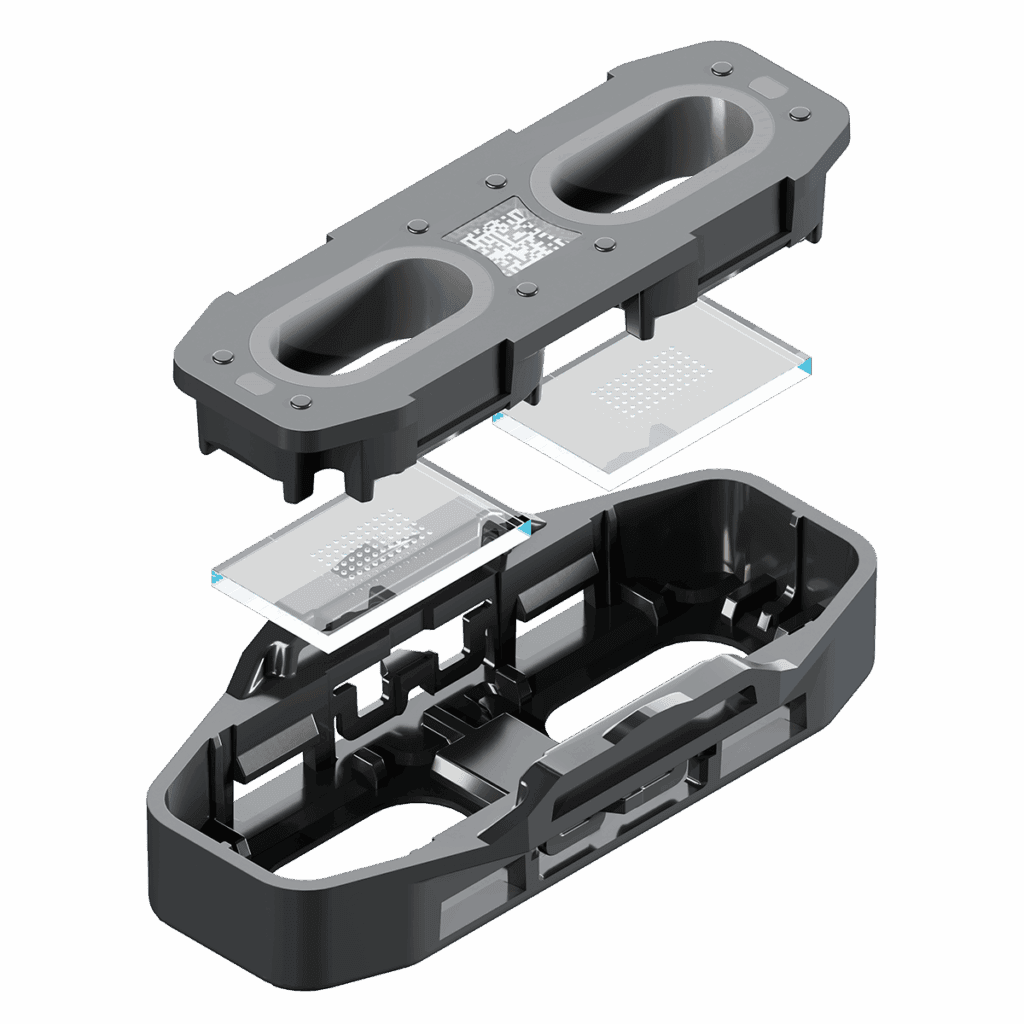In–vitro diagnostics (IVD) is undergoing a transformation, driven by automation and a syndromic approach enabled by multiplexing technologies. At AliveDx, we’re proud to lead this evolution with the MosaiQ AiPlex® VAS microarray, a fully automated multiplex immunoassay designed to detect three critical autoantibodies: PR3, MPO, and GBM in a single, streamlined test.
These markers are critical in diagnosing ANCA-associated vasculitis and anti-glomerular basement membrane (anti-GBM) disease, which are serious autoimmune conditions requiring swift and accurate identification. Traditional testing methods often rely on sequential single-analyte assays, which can delay diagnosis and increase the burden on laboratory staff. AliveDx’s MosaiQ solution offers a smart, fast alternative that includes multiplex microarrays for more efficient and productive autoimmune testing.

Why PR3, MPO, and GBM matter in autoimmune diagnostics
Early and accurate detection of these autoantibodies is crucial for initiating timely treatment and improving patient outcomes.
The MosaiQ AiPlex® VAS Microarray offers simplified multiplex testing
Developed by AliveDx, the MosaiQ AiPlex® VAS microarray is a single-use, fully automated microarray that simultaneously detects IgG autoantibodies to PR3, MPO, and GBM. An analytical performance study conducted with the microarray prototype was presented at the 2025 Annual Meeting of the American College of Rheumatologists.1
Comparator methods included:
Study highlights: performance across multiple sites
The multi-center[1] study assessed the analytical performance of the microarray prototype using positive percent agreement (PPA), negative percent agreement (NPA), and overall percent agreement (OPA).
[1] Swierczynska N, Armour R, Yau A, Rusi E, Hooper M, Sillitoe J, Wilson C, Griffiths P, El-Shanawany T, Sims F, Gomez G, Fischer C, Hausmann M, Laird H. Analytical Performance of a Novel, Fully Automated Multiplexed Microarray Immunoassay Prototype for the Simultaneous Detection of Autoantibodies to GBM, PR3, and MPO: A Multicenter Evaluation. Abstract 0711 Presented at the 2025 Annual Meeting of the American College of Rheumatologists. Arthritis Rheumatol. 2025; 77 (suppl 9).
Key result indicators:
These results demonstrate high concordance with routine single plex and multiplex methods, validating the microarray’s reliability and clinical utility.
In-vitro diagnostic multiplex testing provides efficient and simple workflows for clinicians
AliveDx’s multiplex diagnostic platform is designed to offer several clinical and patient advantages:
For laboratories, this means streamlined workflows, reduced reagent usage and improved operational efficiency. For clinicians, it means greater diagnostic confidence and accurate decision-making processes that drive efficiency.
What it means for diagnostic testing & patient outcomes
Whether you’re a hospital lab, reference center, or specialist clinic, the MosaiQ AiPlex VAS microarray can help you:
Patients may benefit from fewer delays, less invasive testing, and targeted treatment plans.
AliveDx’s commitment to diagnostic innovation
This study reinforces AliveDx’s mission to deliver next generation in-vitro diagnostics that combine automation, multiplexing and clinical relevance. The MosaiQ AiPlex® VAS microarray is a testament to our dedication to improving autoimmune disease management through smarter technology.
Want to learn more?
Visit AliveDx.com or contact our team to explore how we can help transform your labs diagnostic testing capabilities.
*Certain assays and intended uses for the MosaiQ® system are currently under development and are not yet cleared by the U.S. Food and Drug Administration. The MosaiQ® instrument is available in the U.S. as a class II 510(k) exempt device.
©2025 – AliveDx Suisse SA – AliveDx, AliveDx logo, MosaiQ, AiPlex and MosaiQ AiPlex are trademarks or registered trademarks of AliveDx group companies in various jurisdictions. This study was funded by AliveDx Suisse SA, Eysins, Switzerland. Not all methods may be available in all territories. Subject to regulatory clearance in some territories.





